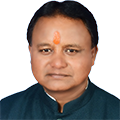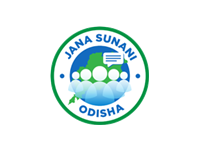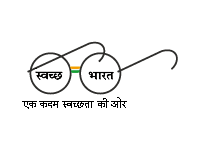- Scheduled Castes & Scheduled Tribes Research & Training Institute, Bhubaneswar
- Academy of Tribal Languages and Culture
Location :The Institute is centrally located in the city of Bhubaneswar at CRPF square adjacent to Priyadarshini market complex facing N.H.-5.
Mailing Address
S C S T R T I, Unit - VIII, CRPF Square, Nayapalli, Bhubaneswar - 751003, Telephone No. : 2563649 & 2561635
Origin & Objectives :The Institute was set up as early as July 8, 1952, christened in the beginning as Tribal Research Bureau (TRB) with the following broad objectives:
- to conduct research studies for documentation of the distinguishing characteristic features of different Scheduled Tribes (ST) and Scheduled Castes (SC) of the State
- to study the processes of social, cultural and economic change and development among the ST and SC communities of the State
- to prepare action plans and suggest effective measures for development interventione
- to serve as a centre for providing data and advisory services to Government on the problems and development of the ST and SC communities
In 1972, the Tribal Orientation Training Institute (TOTI) which was set up in 1967 to impart training to the personnel working in the tribal areas, merged with the TRB and the composite institution was renamed as Tribal and Harijan Research-cum-Training Institute (THRTI).
Consequent upon the instructions issued by the Ministry of Welfare, Government of India, in December, 1994, the nomenclature of the Institute was changed to Scheduled Castes & Scheduled Tribes Research & Training Institute (SCSTRTI).
This is one of the oldest Research Institutes of the Country functioning under the administrative control of Government of Orissa, ST & SC Development Department.
Activities :
The main activities of the Institute are as follows :
Research :
Monographic/ Ethnographic Studies for documentation of culture, customs, traditions, material culture, art and craft, traditional medicine, culture change and modernization of the STs and SCs and development studies of agriculture, environment, education, women, health and nutrition.
Diagnostic and problem oriented studies relating to STs and SCs such as, land alienation, socio-economic bondage and exploitation, indebtedness, low literacy, ill health, mal-nutrition, low fertility and infant mortality; social inequality, untouchability, ethnic discrimination, involuntary resettlement and development, status of women and subordination, economic backwardness, poverty, impact of industrialization and urbanization, rural-urban migration, problems of unemployment, shifting cultivation, deforestation etc.
Determination of ethnic status of different communities claiming their inclusion in the scheduled list.
Planning :
Bench-Mark/ Baseline Surveys covering the Tribal Sub-Plan (TSP) Areas to build up the data base for planning, implementation and post-facto evaluation of various development projects and programmes for STs and SCs
Survey, Identification and Formulation of Action Plans/ Project Reports for :
- Micro-Projects for the development Primitive Tribal Groups (PTGs)
- Integrated Tribal Development Agencies (ITDAs) for development of STs and SCs in the TSP areas
- Modified Area Development Approach (MADA) and Cluster Pockets for development of dispersed tribal population.
- Other Special Projects and Programmes for STs and SCs
Techno Economic Surveys involving experts from various line departments for preparation of Action Plans for development of selected PTGs
Action Plans/ Project Proposals for development and rehabilitation of vulnerable groups, artisans, craftsmen, lower occupational groups among the STs and SCs
Evaluation : Monitoring and Concurrent Evaluation
The Institute takes up monitoring and concurrent evaluation of different schemes implemented by I.T.D.As, Micro-Projects and other development projects to assess the impact and effectiveness of the schemes on the target groups.
Post-Facto Evaluation
Post-facto evaluation studies are also taken up in respect of various development projects in operation in the field to assess the impact of the development programmes on the S.T.& S.C. people. The Institute has conducted a good number of evaluation studies on different I.T.D.As, Micro-Projects, Ashram Schools, Education Complexes etc. and submitted findings to Government for remedial action
Inspection
Recently, Government of India in the Ministry of Social Justice and Empowerment has entrusted the Institute with the task of inspecting different schemes funded by them and implemented by the voluntary organizations functioning in the State. On the basis of the Inspection Reports about the performance of the voluntary organizations further installments are being released. Besides, new proposals submitted by the voluntary organizations are also scrutinized and recommended by the Institute for release of funds.
Training :
This Institute conducts various National level and State level training programmes for different categories of Government and Non-Government personnel working in the field of Tribal Development. The main emphasis of such training programmes is to acquaint the trainees with tribal life and culture, orient them how to put in social input in the development process and thereby making them technically fit for implementing development programmes in tribal and rural areas. Besides, awareness building Programmes on constitutional safeguards and protective legislations including development Programmes are also conducted for tribal youths, elected representatives and other grass-root level workers from time to time. In addition to that, workshops and seminars are also conducted on various issues relating to tribal development and the recommendations evolved in such Programmes are sent to Government for consideration.
Tribal Museum :
The Institute has a Tribal Museum which is functioning through its exhibits, research projects and planned activities as a cultural centre. It has preserved more than 2000 culturally significant and fascinating tribal artifacts and art objects. There are five Tribal Huts of the Santal, Juang, Gadaba, Saora and Kandha made in the traditional style that attract the attention of a large number of visitors from India and abroad. The Institute has organized a number of exhibitions inside and outside the State. The new tribal museum, 'Museum of Man' is coming up to cater to the needs of the visitors and researchers. Steps are being taken up for housing selected tribal artisan families in the tribal huts to promote their traditional art and craft creating facilities for sale of their product. This will be a milestone for preservation, documentation and display of rich tribal cultural heritage of Orissa.
Data Bank & Statistical Cell :
The Institute has a data bank containing computerized Universal Bench-Mark Survey Data. The Statistical Cell compiles relevant data on ST& SC communities from Census and other sources. The data bank is useful for researchers of the Institute as well as for outside scholars, Government departments and other agencies.
Publication :
Publication of books, reports and journal is one of the important activity of the Institute for dissemination of information on various aspects of STs & SCs. So far it has published 25 books comprising monographs and popular literature on SCs and STs, development hand books, action plans, information brochures and book-lets etc. These publications are based on the research work undertaken by the Institute.The Institute brings out regular issues of its half-yearly research journal, ADIVASI containing articles on various aspects of STs and SCs.The priced publications are available for sale in the publication sale counter.
Library :
The Institute has a library of it's own since inception. This is the best Anthropological Library in the State, the specialty of the library lies in its unique collection of rare and useful publications in subjects like Anthropology and Sociology besides other disciplines, which attracts a large number of scholars from outside. Presently it contains 13,060 books, 829 reports and 120 journals.
Research Reports :
The Institute undertakes various social scientific studies under its research, planning, evaluation and museum activities and brings out reports from time to time.
Advisory Board :
The Advisory Board of the Institute has been constituted of 14 members at present which include eminent social scientists, administrators and political representatives to render advice and guidance. Hon'ble Minister, ST & SC Development Department is the Chairperson of the Board and the Secretary-Commissioner the Vice-Chairperson. It meets regularly to review the activities of the Institute and draw up Programmes of research and training.
Administration :
The Institute is headed by a Director of the rank of University Professor. The total sanctioned staff strength is 133 of which 114 are presently in position. To assist the Director in research pursuits, there are Deputy Directors, Research Officers, Statistician, Officer on Special Duty, Research Assistants, Laboratory Assistant, Statistical Assistants, Primary Investigators, Librarian etc. To provide administrative support to the Director there is an Assistant Director (Administration) of the rank of a senior officer of the Orissa Administrative Service, and a number of personal and ministerial staff. The present staff position is given in Appendix - IV.
For further details please contact the Director, S.T. S.C. R & T.I. at the address stated below :
MAILING ADDRESSS
C S T R T I,
Unit - VIII, CRPF Square,
Nayapalli,Bhubaneswar - 751003,
Telephone No. : (0674) 563649 & 561635
















